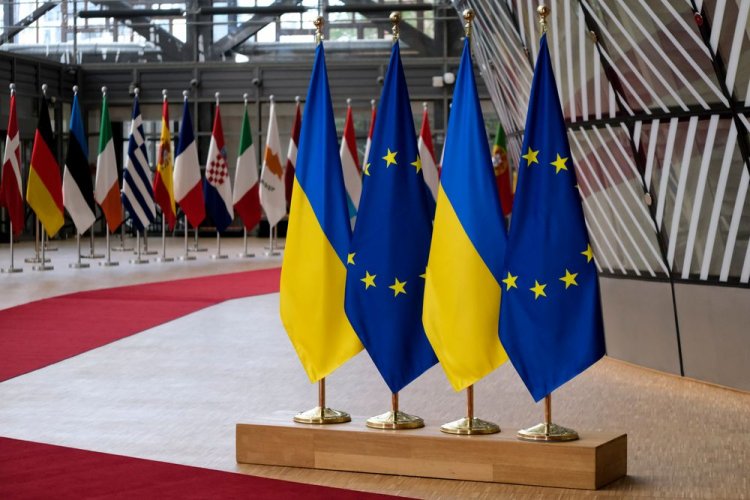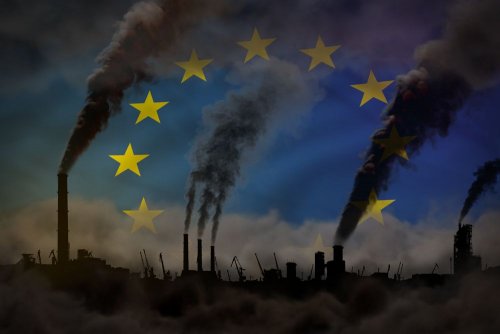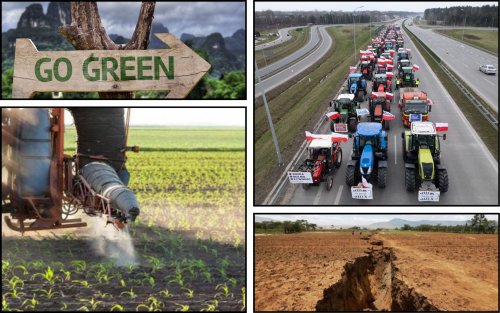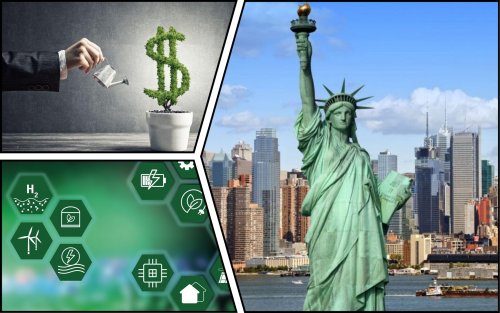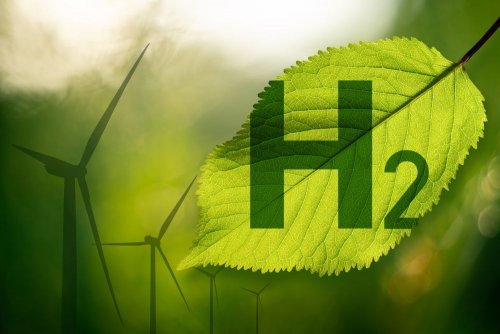In the European Commission's analytical report on Ukraine's ability to fulfill the conditions of EU membership in the environmental protection cluster, the country received the lowest score – 1 out of a possible 5.
The report covered all the legislation of the European Union, which is contained in the so-called acquis communautaire, Natalya Andrusevich, the head of the board of the Resource-Analytical Center "Society and Environment", wrote in her column on European Pravda.
It is noted that the report is based on knowledge and experience gained as a result of many years of close cooperation between the EU and Ukraine and Ukraine's answers to detailed questionnaires. Issues of environmental protection and climate change are analyzed within the framework of Chapter 27, which, together with issues of energy, transport and trans-European networks, are combined in the so-called Cluster 4 "Green agenda and sustainable communication".
Andrusevich emphasized that such an assessment came as a surprise, because the day before, the Minister of Environmental Protection and Natural Resources, Ruslan Strelets, and the Deputy Prime Minister for European and Euro-Atlantic Integration, Olga Stefanishyna, referred to this area as having achieved "significant progress".
She emphasized that in the report it is not only about the 29 directives and regulations contained in Annex XXX to the Association Agreement.
"In order to acquire full membership in the EU, it is necessary to implement all of them acchuis tsommunautaire in the field of environment and climate change. And this, as indicated by the European Commission itself, is about 200 acts, said the expert. – Most of these acts have never been considered in Ukraine and we
Andrusevich emphasized that the EU acquis goes beyond secondary legislation (directives and regulations) and also applies to policies. In the field of environment and climate change, this is, among other things, the need to implement strategic and legislative documents within the framework of the European green course.
She emphasized that although Ukraine, before the full-scale war, declared its intention to achieve climate neutrality by 2060, synchronization with all green EU politicians is "still a long way off."
It is noted that it is also important to implement the directives correctly.
"You cannot skip parts of the directives, come up with your own approaches, if this issue in the EU is regulated by a regulation, you need to remember the need for practical implementation, not just legislative approximation. This cannot be "Ukrainian EU law," she said Andrusevich.
The specialist emphasized that this is exactly the approach that the Ministry of Environment and the Verkhovna Rada have been using recently. Thus, the adopted draft law No. 8037 "On chemical safety and management of chemical products" does not fully implement the relevant EU regulation. And the reform of industrial pollution (draft law No. 6004-d "On ensuring the constitutional rights of citizens to an environment safe for life and health") foresees its own approaches and does not even try to implement the relevant directive holistically.
She emphasized that Ukraine should perceive this report as a signal of long and hard work. It is necessary to determine what specifically and in what specific area needs to be changed. Thus, there are more than 100 directives, regulations, and entire areas of regulation that were not previously considered in the context of European integration. For example, zoos, noise pollution, etc.
Andrusevich also emphasized the need to implement all requirements and regulations, and not to replace them with analogues. After all, membership is not an association.
"If earlier the EU could watch Ukraine's implementation of its acquis "through its fingers", now it will meticulously demand compliance with all requirements – from the goals of the directive to the last comma in the text," she added.
It is noted that attention should also be paid to the institutional framework that needs to be created, as well as to increasing the capacity of ministries and agencies. In particular, to understand the relevant provisions of EU legislation.
"Green questions are transversal questions. Therefore, it is necessary to think about intersectoral cooperation and work with other relevant ministries that deal with relevant issues in the field of the European green course: energy, economy, industry, agriculture, transport, finance. Banal, but comprehensiveness means that the weight of these (green) issues should be understood at the highest level of decision-making," the expert emphasized.
She added that it is necessary to conduct a dialogue with the EU in order to have an understanding of its expectations and to provide complete and reliable information about the situation in Ukraine. After all, Ukraine and the EU can reach an understanding only through painstaking expert dialogue.
Andrusevich noted that changes justified by the needs and challenges of war (in permitting procedures, access to information, etc.) should be justified and have clearly defined time frames. After all, unjustified, "permanent temporary" non-compliance with European law can become a problem on the way to the EU.
Earlier, EcoPolitic wrote, that in Ukraine, to increase the energy efficiency of the industrial sector, enterprises will have to conduct an energy audit or implement energy management systems (EMS). However, in the EU, EN 16247 or ISO 50002 standards are used to achieve this goal.
As EcoPolitic previously reported, Deputy Minister of Environmental Protection and Natural Resources Ruslan Grechanyk said that the National Plan for the Recovery of Ukraine in the field of eco-security should be cross-sectoral and contain the principles of the European green course.

